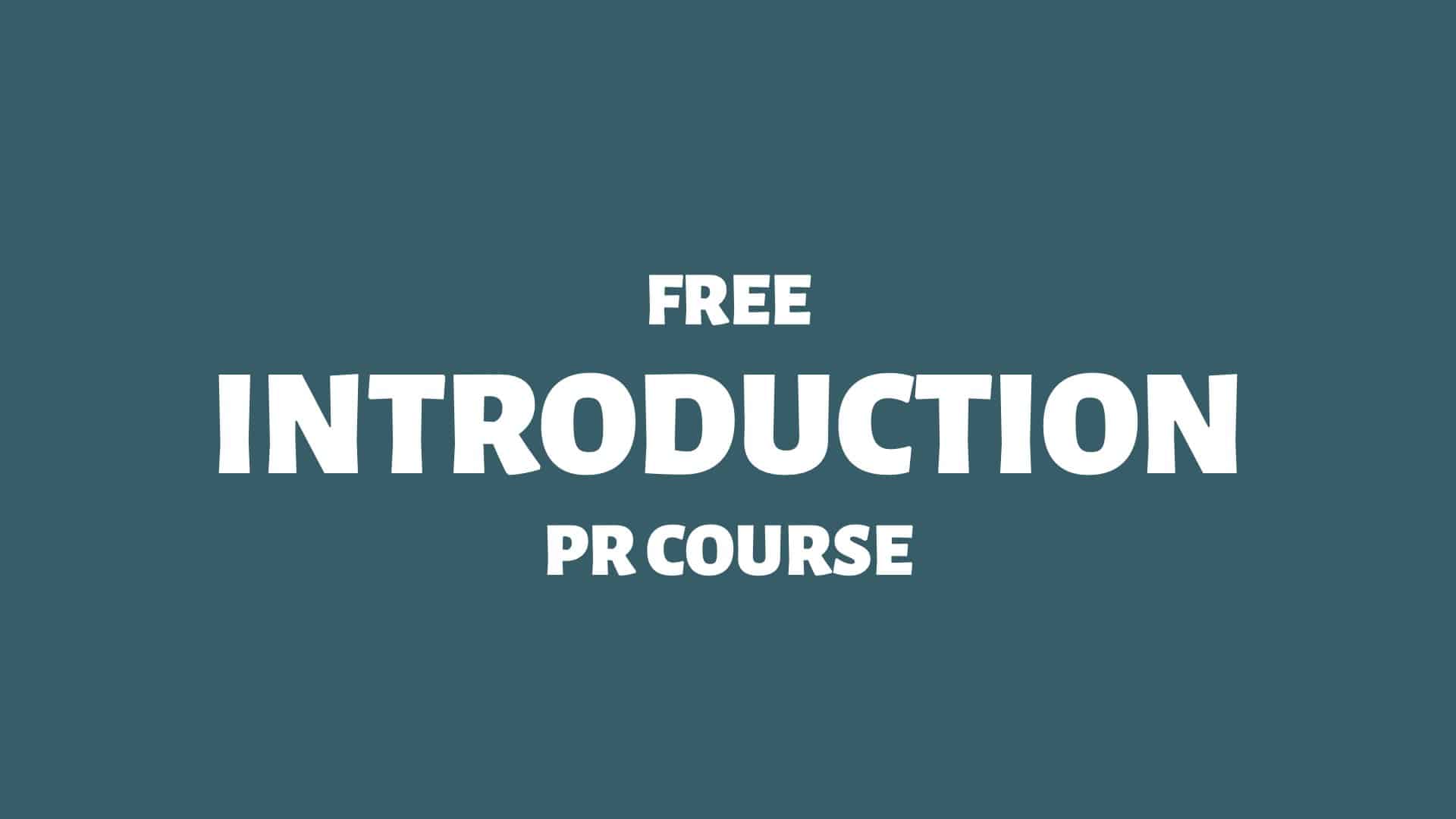Do you need PR things to do? I’ve got you covered!
Every once in a while, a great PR idea comes along. 1Please note that ambitious public relations interns will always keep a Moleskine close to jot down ideas or instructions as they occur.
However, in most situations, we must develop awesome PR ideas from scratch — and on the spot. Generating inspired PR ideas is hard work and can sometimes be challenging.
Unless you make lists.
Here we go:
PR Things To Do (Make These Lists!)
I’ve assembled this easy-to-use tool to assist you in developing better PR ideas. I’ve based this method on making lists and extracting PR ideas that you can use from them.
1. You Should Make a “Pick-a-Fight” List
Make a list of people or organisations your organisation could make very angry.
Why should you make this list?
Take the Swedish brand Oatly, for example. They sell oat milk. They aimed at the milk industry (“The Milk Lobby”). Since Swedes are historically very positive to milk, this stirred up emotions — and enough of these emotions were favourable to Oatly for this to be a powerful PR strategy.
Everyone loves a good conflict from a safe distance, and someone is always waiting to be triggered.
Corporate executives are sometimes scared of stirring up too much conflict for comfort, so your approach should always be strategically sound and well-researched before you start the fight.
2. You Should Make a “Piggybacking” List
Make a list of experts and thought leaders inside and outside your industry.
Why should you make this list?
On behalf of the Beech-Nut food company, “The Father of Spin,” Edward Bernays hired a well-known New York physician to survey other physicians to see what was most healthy — a light or a heavy breakfast. The doctors confirmed that a hearty breakfast was better.
After some publicity and targeted lobbying, eggs, ham, and bacon became the quintessential American breakfasts, and hotels worldwide started serving eggs, ham, and bacon for breakfast. In less than six months, Beech-Nut’s sales boomed.
Piggybacking on the authority of others is one of the more classic PR tactics that we should always use responsibly and with caution.
3. You Should Make a “Stupid Majority” List
Make a list of stupid majorities in your industry.
Why should you make this list?
Many PR successes come from targeting a majority on its way out of fashion. Now and then, there’s a shift in society where new majorities replace old majorities. These new majorities, of course, started as minorities.
Majorities about to transform into old majorities are what I call stupid majorities. Smart minorities are those minorities who are soon about to become the new majority.
As a bonus, smart minority fans will be disproportionately more engaged and supportive due to the conversion theory.
So, what are the stupid majorities today in your industry?
Learn more: The Stupid Majority PR Strategy
4. You Should Make a “Whistleblower” List
Make a list of any criticism or complaints your organisation might have about your competitors.
Why should you make this list?
You can often harvest informative suggestions if you ask an organisation’s employees about competitor weaknesses.
Perhaps they treat their employees badly? Perhaps their executives are lining their pockets? Perhaps their quality of services or products is poor? Perhaps they’re overcharging? Perhaps they’re struggling financially? Perhaps they have unethical practices?
Get in on any disturbing issues concerning your competitors. As some might be true, great PR ideas are lurking around these murky waters.
Learn more: Your CSR is Boring — You’re Picking the Wrong Fights
5. You Should Make a “Creative Influencer” List
Make a list of influencers and brainstorm how each would spend 10,000 EUR from your budget — if they were allowed to spend it creatively.
Why should you make this list?
The idea is to put yourself inside the minds of influencers and imagine how they would promote your brand.
Such brainstorming ideas are likely outlandish, but some could be starting points for great PR ideas. The best way to develop one good PR idea is to develop one hundred bad ones first.
For inspiration, I suggest checking out famous vlogger Casey Neistat’s video “Make It Count” which he made on behalf of Nike:
Learn more: “For Content!”
6. You Should Make a “Creative Coworker” List
Make a list of employees and ask them how they would spend 10,000 EUR from your budget if they could spend it any way they wanted without constraints.
Why should you make this list?
You sometimes get surprising answers if you ask your employees how they would spend a budget.
I’ve read many such ideas, and, oh boy!
How about installing a swimming pool on the roof? How about inviting a famous band or throwing an epic out-of-proportion party? How about paying for everyone’s gym membership fees for a whole year? What about investing the money in a nearby daycare facility? How about building more parking spots or buying free-to-use electric kickbikes? What about a donation to suicide prevention to commemorate a colleague’s brother? What about making a row of quiet rooms where employees can meditate and catch their breaths?
Ideas like these are often all over the place, making them perfect for finding great PR ideas.
Of course, some will suggest giving the money as bonuses — which might not be a terrible PR idea.
7. You Should Make a “Journo Topics” List
Make a list of trade journalists and email them, asking them what they’re most interested in at the moment.
Why should you make this list?
Journalists are often surprisingly supportive when organisations ask for advice.
If you can get relevant journalists to disclose what they’re extra interested in right now, their input is valuable fodder for great PR ideas.
Learn more: How To Write a PR Pitch
8. You Should Make a “Survey Questions” List
Make a list of potential survey questions.
Why should you make this list?
A client launching a job market website asked job seekers if they had lied about their resumé. It culminated in national headlines and thousands of registrations.
“Liars — 4 out 5 job seekers lie on their resumé.”
Another client struggled to get clients to sign service agreements on their backup power solutions. So, we surveyed hospitals about their service agreements. It culminated in national headlines and all hospitals signing up.
“Deathtraps — 7 out of 8 hospitals haven’t serviced their backup power in case of a blackout.”
Journalists are almost always open to interesting new survey results. Make a list of questions and dare to be creative and pointy.
9. You Should Make a “Sales Dreams” List
Make a list of salespeople on staff and ask each to come up with a headline about your brand (that they would love to see).
Why should you make this list?
Salespeople go into meetings carrying the weight of their entire organisation on their backs. If the organisation has an excellent reputation and does well, its jobs become much more manageable.
Salespeople often come up with relatively straightforward headline ideas. Their ideal headlines are often straight-up praise for the organisation. But this input is essential; salespeople often know precisely why their organisation deserves credit.
These lists are highly relevant for classic business press pitches: new clients, new hires, new awards, testimonials, milestones, contracts, innovations, and launches.
10. You Should Make a “Recurring Events” List
Make a list of annual events.
Why should you make this list?
Promoting annual events is becoming a staple of the PR industry.
The trend is that the organisation does something yearly that gathers momentum and slowly grows. Please think of how Apple can launch yearly events without telling anyone beforehand what they will launch.
Please note that it doesn’t have to be physical events, either. It can be the launch of a yearly report, for example.
11. You Should Make a “Gossip Girl” List
Make a list of the most prominent topics of gossip in your industry.
Why should you make this list?
There’s gossip flying around in every professional industry. Typical gossip is often unsubstantiated but still so interesting that people can’t stop themselves from talking about it.
Making a list of gossip topics might feel unprofessional (“dirty”), but we should never underestimate the allure of guilty interests.
Why are people so interested in these topics? Is there any truth to any of them, or are they rumours? Are there, in fact, quite severe underpinnings to some of these topics that deserve an open debate?
Gossip is often interesting for a reason.
And that reason might hold an embryo for your next great PR idea!
12. You Should Make a “Keyword Research” List
Make a list of the most used keywords used by people who land on your website.
Why should you make this list?
Providing online education for free is perhaps one of the most under-utilised PR tactics out there. People go online to learn about particular matters — and sometimes, these matters align with existing in-house expertise.
Keyword research is an excellent approach to getting accurate data on pain points. And this information should help you develop highly relevant PR ideas.
13. You Should Make a “Popular Content” List
Make a list of the top-visited pages on your website.
Why should you make this list?
List the most visited pages on your organisation’s website and look for something that sticks out, something that might be surprising to you.
“Why are our website visitors so obsessed with one of our employee’s old blog posts? What is so interesting about that particular one?”
14. You Should Make a “Pain Point” List
Make a list of customer pain points.
Why should you make this list?
This is an easy — but great!— one:
Create a form on your website’s thank-you page asking new subscribers about their biggest industry-specific challenge.
Your customers’ pain points make for great PR ideas.
15. You Should Make a “Unspoken Truths” List
Make a list of things everyone in the industry knows (but no one talks about).
Why should you make this list?
“Unspoken truths” are typically powerful PR concepts.
People (especially journalists) love to hear others say what they already know to be accurate, but no one dares to express it; this is basically what most stand-up comedians talk about for laughs.
These truths may be uncomfortable, so create a safe brainstorming environment.

THANKS FOR READING.
Need PR help? Hire me here.

What should you study next?
Spin Academy | Online PR Courses

Spin’s PR School: Free Introduction PR Course
Get started with this free Introduction PR Course and learn essential public relations skills and concepts for future success in the PR industry.
Introducing Public Relations
Public Relations History
Publics in Public Relations
Comparing Public Relations
Public Relations Resources
Learn more: All Free PR Courses
💡 Subscribe and get a free ebook on how to get better PR.

Annotations
| 1 | Please note that ambitious public relations interns will always keep a Moleskine close to jot down ideas or instructions as they occur. |
|---|


